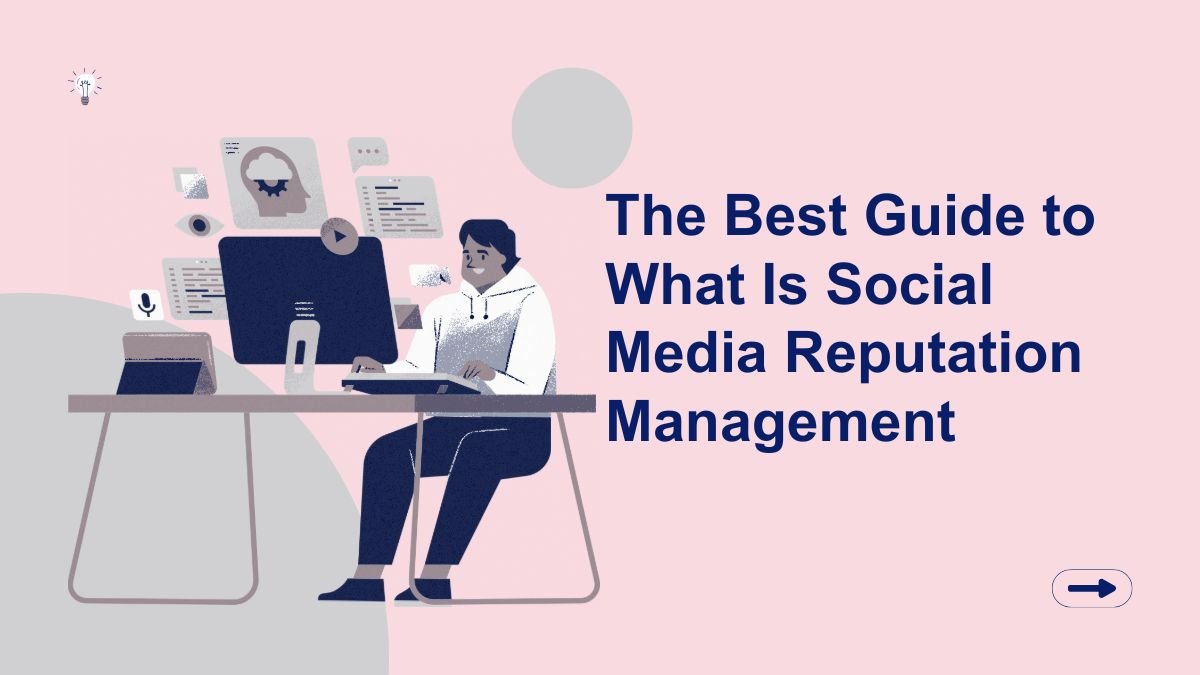If you’re active in business, you’ve probably heard about what is social media reputation management. But what does it actually mean — and why does it matter in an era in which the flimsiest misstep can become Internet dreck?
In this blog, we will delve into the world of what is social media reputation management is, what it means for your brand and how you manage the expectations of what people think of your business in the digital world. By the time you’re done, you’ll leave with practical advice for defending and improving your digital reputation.
The Relevance of What Is Social Media Reputation Management
What Is Social Media Reputation Program?
The act of managing how your business is perceived, both good and bad on social media is known as what is social media reputation management. It’s more than just defending yourself from bad-mouthing; it’s about actively steering the narrative of your brand when it matters most.
This can include:
-
Monitoring mentions of your business on platforms such as Facebook, Twitter, Instagram, and LinkedIn.
-
Responding to customer feedback, whether positive or negative, to earn trust.
-
Building a consistent brand voice to communicate with your audience in an authentic way.
The Importance of Online Reputation on Social Media
Social channels are where consumers go to either share their opinion, ask for advice, or complain. And think about it, if a restaurant has scores of negative reviews on Yelp or Google, would you eat there? The same goes for your brand.
Here’s why what is social media reputation management matters:
-
Trust of the customers: Positive branding creates trust and customer loyalty.
-
Brand Image: Social media makes good and bad stories about your business gain MORE visibility. Reputational management: Keep in control of what is being said about you. Keeping in control of what is being said about you will ensure that the story being told about you is the one you want to tell or hear.
-
Sales Influence: A whopping 93% of purchasing decisions are influenced by online reviews, a study found. That means your social media reputation is directly linked to your bottom line.
Essential Elements of What Is Social Media Reputation Management
![]()
Brand Mentions To Track
The first stage of social media reputation management is being aware of what people are saying about you. Use tools like:
-
Hootsuite and Mention for live updates.
-
Google Alerts to monitor how your brand is being mentioned on other websites.
-
Brandwatch or Sprout Social for extensive sentiment analysis.
Pro Tip: Watch not only complaints. And also listen for positive comments that you can continue to accentuate as you build your strategy.
Engaging With Your Audience
Answering your customers is NOT optional. Whether you’re saying thank you for a great review or responding professionally to a complaint, engagement is a way to demonstrate that you care.
When considering what is social media reputation management is, here’s how to engage:
-
Respond Promptly: Get back to people fast when they comment. Being slow to respond can make you appear to be unresponsive.
-
Be Empathetic: A kind word goes a long way — particularly when you’re getting complaints.
-
Stay True: Your brand voice should not change in any of your responses. Insta, Upbeat, Professional, or Quirky: whatever your style, consistency builds trust.
Addressing Negative Feedback
Bad reviews can be a blow, but dealing with them can make or break an engagement. Here’s a quick guide based on the principles of what is social media reputation management:
- Acknowledge the Issue: You can begin by expressing gratitude towards the customer for their feedback.
- Apologize As Needed: If your business was in the wrong, fess up and say sorry.
- Offer a Resolution: Offer a solution to remedy the situation, which may include offering a refund, replacement or a direct response.
BrightLocal reports that 79% of consumers who leave negative reviews are happy when they receive a response. There are opportunities to demonstrate great customer service behind every complaint.
Creating a Content Strategy
A good content strategy is essential to support social media reputation management. You are what you write by what the content you post on the internet. You’ll want your posts to represent who you are, demonstrate your expertise, and engage with your intended audience in a meaningful way.
- User-Generated Content (UGC): #Repost your satisfied customers. There is no better way to create credibility than social proof.
- Informative Posts: Provide helpful content in the form of tips, tutorials, or industry-related articles.
- #BTS Your Culture: Show your followers what it’s like behind the scenes of your company. Transparency builds trust.
Crisis Management
Even with your best intentions, you make mistakes. Perhaps an inflammatory post was shared, or an employee behaved badly. Either way, how you respond makes a big difference.
Crisis handling is a critical aspect of social media reputation management.
-
Develop and Implement a Plan: Create a social media crisis blueprint in advance.
-
“Ignore Everything”: The truth is, Alinsky’s Rule Number 3 – “Whenever possible, go outside the experience of an opponent” – requires for silence the same way a zombie requires for human flesh.
-
Show Your Hand: Admit your mistakes and tell others how you plan to prevent them from recurring.
Social Media Reputation Management Resources
If you’re learning what is social media reputation management is, the right tools can support your journey.
- Hootsuite: Excellent for scheduling posts and tracking brand mentions.
- Sprinklr: Powerful analytics for sentiment and engagement insights.
- Reputology: A service that specializes in monitoring and responding to online reviews.
By purchasing these solutions, you simplify the system and make sure that you can get down to the work of creating real and relevant work.
Perks of Taking a Proactive Approach to What Is Social Media Reputation Management
Assuming control of your social media reputation offers a lot of benefits:
-
Protects Your Brand: Monitor for issues early to get ahead of potential crises.
-
Increases Loyalty: Happy customers are loyal customers, and that means you are more likely to see them again.
-
Increased Online Visibility: Active engagement and content creation raise your profile’s visibility in the eyes of social media algorithms so your profiles will be ranked higher in search engines.
How to Implement a Reputation Management Plan Now
Knowing what is social media reputation management makes implementation easier. Here’s how:
- Audit Your Online Reputation: First, check out what kind of reputation you might already have. Some suck, some are fantastic, just like anything in life, but what are people saying about your brand?
- Set Clear Guidelines: Develop a tone of voice and a set of response policies for your team.
- Automate: Save time by deploying monitoring and posting tools to track mentions and schedule messages.
- Educate Your Staff: Make sure that everyone working on social media knows what you value and what standards you have for your brand.
Think Like a Bouncer About Reputation
Your reputation on social is one of your most valuable possessions. Simply by listening and engaging, responding to uncomfortable situations, and being ready for crises, you can develop a vibrant, authentic online personality that highlights your brand’s values and virtues.
Understanding what is social media reputation management helps you think like a gatekeeper — not just reacting but actively shaping your brand’s online story.
Take Action Now
BEGIN TO TAKE YOUR SOCIAL REPUTATION SERIOUSLY
The tips in this guide will give you a head start in doing just that. Take them seriously and see how it changes the relationship between your brand and your audience.
In need of managing your social media in a desirable way? Reach out to us—we can help you build a reputation that stands out.
learn more: How to Improve Reputation Management: A Complete Guide





